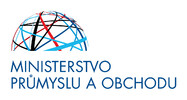Michel Chion
Rok narození: 1947
Profese: skladatel
Země: Francie

Michel Chion born in 1947 in Creil, France, is a composer of experimental music. He teaches at several institutions in France and currently holds the post of Associate Professor at the University of Paris III: Sorbonne Nouvelle where he is a theoretician and teacher of audio-visual relationships.
zdroj Wikipedie
Publikace autora

Audio-vision
Michel Chion
anglicky / 1994
In Audio-Vision: Sound on Screen, French critic and composer Michel Chion reassesses audiovisual media since the revolutionary 1927 debut of recorded sound in cinema, shedding crucial light on the mutual relationship between sound and image in audiovisual perception. Chion argues that sound film qualitatively produces a new form of perception: we don't see images and hear sounds as separate channels, we audio-view a trans-sensory whole. Expanding on arguments made in his influential books The Voice in Cinema and Sound in Cinema, Chion provides lapidary insight into the functions and aesthetics of sound in film and television. He considers the effects of such evolving technologies as widescreen, multitrack, and Dolby; the influences of sound on the perception of space and time; and the impact of such contemporary forms of audio-vision as music videos, video art, and commercial television. Chion concludes with an original and useful model for the audiovisual analysis of film. [amazon.com]

Film, a sound art
Michel Chion
anglicky / 2009
French critic and composer Michel Chion argues that watching movies is more than just a visual exerciseit enacts a process of audio-viewing. The audiovisual makes use of a wealth of tropes, devices, techniques, and effects that convert multiple sensations into image and sound, therefore rendering, instead of reproducing, the world through cinema. The first half of Film, a Sound Art considers developments in technology, aesthetic trends, and individual artistic style that recast the history of film as the evolution of a truly audiovisual language. The second half explores the intersection of auditory and visual realms. With restless inventiveness, Chion develops a rhetoric that describes the effects of audio-visual combinations, forcing us to rethink sound film. He claims, for example, that the silent era (which he terms "deaf cinema") did not end with the advent of sound technology but continues to function underneath and within later films. Expanding our appreciation of cinematic experiences ranging from Dolby multitrack in action films and the eerie tricycle of Stanley Kubrick's The Shining to the way actors from different nations use their voices and words, Film, a Sound Art showcases the vast knowledge and innovative thinking of a major theorist. [amazon.com]

Hlas ve filmu
Michel Chion
česky / 180 stran
Kniha otevírá v oblasti filmových studií novou oblast: jestliže filmová teorie nahlíží svůj předmět zpravidla z hlediska vizuality, Chion situuje výchozí bod svých analýz do zvukového aspektu filmu.










